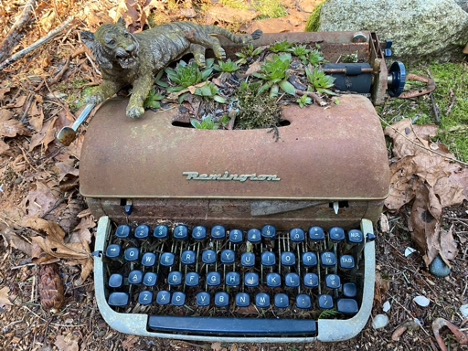On deepening collaboration through powerful questions

I’m just home from visiting my daughters at college in western Washington. Over walks and coffee, I got to dip into their world of wonderment as they grapple with their journey to adulthood. Who am I in this world? What is my unique contribution? How might I best answer the call of our troubling times?
I was reminded of poet Rainer Maria Rilke’s beautiful passage in Letters to a Young Poet:
“Have patience with all that is unresolved in your heart and try to love the questions themselves… Don’t try to find the answers now. They cannot be given anyway, because you would not be able to live them. For everything is to be lived. Live the questions now. Perhaps you then may gradually, without noticing, one day in the future, live the answers.”
As I understand this passage, Rilke is suggesting that essential questions are, indeed, unanswerable, as we are ever evolving. It is our active engagement with them that matters, as does our ability to allow the questions to guide our next steps, even when we’re unsure where the path will lead.
The role of questions and inquiry is central to my work with community collaborations. Starting with questions of purpose (Why are we gathering?); using questions to design our approach (What is it we most seek to understand? To impact?); and inviting in shared sense-making and reflection as we move forward (What are we noticing? Why does that matter?). Good questions help us build approaches that are intentional and relevant over time.
But there are bigger questions, perhaps deeper questions, that we also ask ourselves. These are often organized around our bold goals. End childhood hunger. Housing for all. These goals are perhaps never fully met, and so we must live the questions that help us advance our work. Where are we best leveraging our collective strengths? What is our next move, given our capacity and the opportunities at hand? What are we learning and how might that affect our work as we move forward?
A truism of community-driven systems change is that the context – social, political, economic – of our work is ever-changing. We start an innovative youth development collaborative, and the pandemic upends a hard-won partnership with the local school district. A promising maternal mental health pilot project doesn’t receive continuation funding. A once-vibrant senior center now sits vacant even as isolation deepens in our rural communities.
Crafting good questions meets the changing nature of our work to ensure we focus on the work most at-hand. Living the questions in our work can revitalize a long-standing coalition that is struggling with how to be relevant in the changing landscape, post-pandemic. They can help us course correct when changes in leadership or funding occurs, or when new opportunities arise.
What makes for a powerful question? My favorite questions are ones that are open-ended (they can’t be answered with a simple yes/no); encourage generative thinking (How might we…); deepen empathy and understanding (Tell me more…); and that build a sense of excitement (What’s being made possible as a result of our time together today?)
Here are a few more favorites when working with a community collaboration.
- Community Building Questions: What do I hope to give and to receive during our time together? What’s a question I hope to explore? How am I showing up today?
- Strategy Development Questions: What’s already working, and not working, and how do we know? What’s possible? What more do we want to know? Who else needs to be in the room?
- Reflection Questions: What’s standing out to you? What are we learning? How does this inform what we’re doing now and what we might do next?
For more inspiration, please see Joanna Macy’s Work That Reconnects framework as described in her book, Active Hope; Margaret Wheatley’s work in Turning to One Another; and The World Café, by Juanita Brown and David Isaacs.
As I think back on my visit with my daughters, I’m aware that the questions they’re asking are not that different from ones I ask myself. Especially, How might I best answer the call of our troubling times? I am comforted by Rilke’s advice to live the questions. I can see how my life thus far has been shaped by having lived into the answers that emerged from my younger self’s inquiry, and I strive to trust what unfolds as I live the questions of today.
